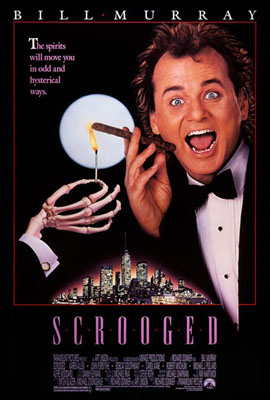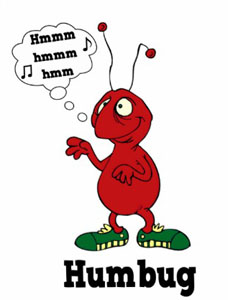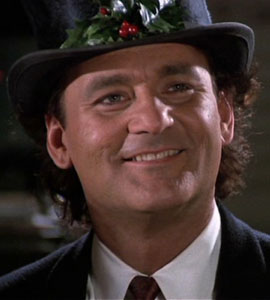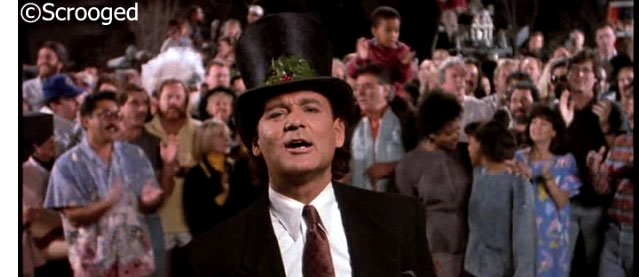Humbugs vs. Heroes: Holiday Showdown!
“Humbug is the term used to refer to an act of fraud or deceit. It can also refer to an individual who carries out acts of trickery, that is, a hypocrite.”
– Ask.com
“Whether we like it or not, the holiday season is upon us,” said Psychotherapist Cyndi Sarnoff-Ross, noting that this fact (made even more sudden this year by a shorter span from Thanksgiving to Christmas) can “elicit emotions in you ranging from excitement and anticipation to sadness and even dread.” (Sarnoff-Ross, 2010)
These feelings are real, have a the same legitimate causes, and wreak their results all over our Holiday gatherings, no matter if it’s a grouchy Grandpa who won’t even talk to the over-stimulated children, or a gushing Aunt who’s so full of the Holiday Spirit as to seem “full-of-it” to everyone. Full. Of. It.
There are holiday lovers (Heroes) and holiday haters (Humbugs)—and the throng caught in the middle, just trying to enjoy or endure. For “about ten-percent of adults” according to Dr. Bill Knaus, “as the days shorten, a cloak of misery makes its melancholic decent,” and this only increases during the brightness of the holidays (Knaus, 2010). The converse is also true. While Sarnoff-Ross is speaking about increased loneliness, if that’s a daily struggle for you, I’d go further to assert that if joyfulness, boisterousness, or feeling like you need to be responsible for others’ happiness is “is something you typically experience, then the holidays can often exacerbate those feelings” (2010).
The problem with Holiday Humbugs, is not their humbuggery, nor is the problem that the Holiday Heroes try to carry the festivities for everyone; It’s not the people. Part of holiday season stress and strife seems to be that everyone thinks they’re doing it right and the other one is spoiling it for everyone else.
We’re All Shmucks; it’s Christmas!
“The Jews taught me this great word: Schmuck. I was a schmuck, and now I’m not a schmuck!”
-Frank Cross (Bill Murry) Scrooged, 1988
 The holidays are wonderful and wearying. They are sweet and stressful. They are the most wonderful time of the year. But it is a blessing that “wherever you fall on that emotional continuum” the holidays only come once a year, because “depending upon your history, your current family circumstances and other variables, you may feel as if you can’t wait for all the festivities to be over,” (Sarnoff-Ross, 2010). Be you Hero or Humbug, the holiday season represents a high level of energy output. The difference is the direction of that energy.
The holidays are wonderful and wearying. They are sweet and stressful. They are the most wonderful time of the year. But it is a blessing that “wherever you fall on that emotional continuum” the holidays only come once a year, because “depending upon your history, your current family circumstances and other variables, you may feel as if you can’t wait for all the festivities to be over,” (Sarnoff-Ross, 2010). Be you Hero or Humbug, the holiday season represents a high level of energy output. The difference is the direction of that energy.
For the Humbug, the direction of their effort is internal. It is rare that a person is a blazing joy year round but has the reputation of hating Christmas, Hanukkah or Kwanza. Usually, Humbugs are the type to already face head on the negativity that many choose to overlook. Heroes, here’s a tip: that a state of mind that is theirs to correct or keep. You can’t erase that for one day a year just by saying “C’mon, it’s Christmas” a few dozen times. Plus, it is actually disrespectful of their feelings and the amount of effort they’re expending simply to be present and endure the holiday and its Heroes.
Social interactions are difficult for many of us, especially at times when extended family are around, but if your Humbug is an introvert—realize that these interactions are twice as difficult because they are not wired to be relaxed and restored by them but to “trigger stress thinking.” For the Humbug, according to Dr. Knaus, awareness that the social situation alone can change your thinking “sets the stage to defuse a double trouble, such as blaming others for your mood,” (2010). So, even though the Heroes may be annoying, keep exerting that energy on maintaining your internal thought life.
 Holiday Heroes love the holiday spirit, which usually implies the amalgam of decorations, music, food and change to routine throughout the season. All healthy, expressive external effort. However, both Sarnoff-Ross and Dr. Knaus that this disruption in routine is hard on a Humbug, increasing “distress” and reducing healthy sleep, as seen with data from a 50 year Syracuse University Study, (2010).
Holiday Heroes love the holiday spirit, which usually implies the amalgam of decorations, music, food and change to routine throughout the season. All healthy, expressive external effort. However, both Sarnoff-Ross and Dr. Knaus that this disruption in routine is hard on a Humbug, increasing “distress” and reducing healthy sleep, as seen with data from a 50 year Syracuse University Study, (2010).
Lest this sound like an apologetic for the Humbug, the Hero has it hard, too. “If you think you are obliged to make your friends and family happy around the holidays, you’ve taken on an awesome responsibility,” Dr. Knaus said. Holiday Heroes feel the same loss of family who isn’t there, the same stress at the parties—probably more over the food preparation—as the Humbug, they just focus their energy outward, ensuring that all have a grand time. This is where the Humbug is a consistent blip on their Reindeer Radar.
Look carefully at Dr. Knaus’ statement, it’s psychological craftiness. While initially seeming to praise, there are tones of obligation and responsibility for making others feel happy. Our President Lincoln would say that making them all happy is an impossible goal. This self-imposed impossible goal can be linked to why Heroes actually stress out more before the holidays, take days to recover after and—though they may appear the life of the party—are actually unfulfilled during it, because they are exerting their energy on everyone else’s fulfillment.
The Gift That Keeps on Giving
“It’s Christmas Eve! It’s…it’s the one night of the year when we all act a little nicer, we smile a little easier, we cheer a little more. For a couple of hours out of the whole year, we are the people that we always hoped we would be!”
-Frank Cross (Bill Murry) Scrooged, 1988
 This year give two gifts; the gift of understanding, and the gift of genuineness. Look at the definition of a humbug—not how we mean it today, as a holiday grouch, but as Scrooge meant it when the term was born. A fraud, deceit, trickery or a hypocrite. He said “Christmas? Bah, humbug!” to mean that the whole thing was much of a farce. Honestly, when I walk down the Christmas aisle being set up as the Halloween aisle is taken down, I think bah, humbug, too. The modern American Christmas Marketing Machine does deserve a bah, humbug, but that doesn’t mean your holiday needs to feel the same. Just add those two gifts, understanding and genuineness.
This year give two gifts; the gift of understanding, and the gift of genuineness. Look at the definition of a humbug—not how we mean it today, as a holiday grouch, but as Scrooge meant it when the term was born. A fraud, deceit, trickery or a hypocrite. He said “Christmas? Bah, humbug!” to mean that the whole thing was much of a farce. Honestly, when I walk down the Christmas aisle being set up as the Halloween aisle is taken down, I think bah, humbug, too. The modern American Christmas Marketing Machine does deserve a bah, humbug, but that doesn’t mean your holiday needs to feel the same. Just add those two gifts, understanding and genuineness.
Scrooge’s journey, semi-parodied and updated by Bill Murry in Scrooged, had to involve a reflection on his whole life to bring genuine, lasting personality shift. The story would not have ended so happy if Dickens had wrote “so for one day a year, Scrooge decided to suck it up and deal, and slapped on a smile to make Crachett feel better.”
Therefore Humbugs, it is unfair to think you can just swallow your feelings and be “fake happy.” It is also unfair to just stew in your own sorrow during a party. My advice is to be genuine with your feelings but understand that they are different than others’ and thus, others will try to help you. Show them how. If you’re pestered again and again to eat pie, don’t, but say “You know what I would like…” and let them get it. If you’re asked for the thousandth time how you’re doing, be honest but positive. “I’m doing my best,” or find something around you that you can say you’re enjoying, or even share a memory that has captured your thoughts, though sad that the time has passed. The understanding that your family would like to see you happy at the holidays need not be a battleground when it can be a bridge, if a little of that energy is focused outward.
Holiday Heroes, this year focus your energy a bit more inward; try and people watch. Trust others to be grownups that can make their own fun, or should be able to, if left to do so. Once the food is out, music is on and the group is at a slow simmering mingle, you rest. Find a quiet seat, a plate of food, a drink and soak it in. Make a mental note of how many people are enjoying themselves and don’t rise from the chair until you feel settled and fulfilled. If anyone does seem particularly withdrawn, don’t hit them with a ballistic mistletoe. Understand their desire for quiet, and be genuine in your desire to include them, but invite rather than invigorate and ask rather than offer.
It’s wonderful to laugh together through the holidays, if it’s genuine and together. It’s wonderful to cry at the holidays, if it’s genuine and together. I truly wish you the most joyful and fulfilling of holidays this year, but most of all, I wish you to have holidays that you can look back on as more understanding, inclusive and genuine, because those will be gifts you can use all year long.
__________________________________________________
Knaus, Bill. (2010). “It’s Beginning to Feel Like… Bah! Humbug!”. Psychology Today. Science and Sensibility. Retrieved from: http://www.psychologytoday.com/blog/science-and-sensibility/201011/its-beginning-feel-bah-humbug
Sarnoff-Ross, Cyndi. (2010). Deck The Halls or Bah Humbug? Daily Strength. Depression. Retrieved from: http://www.dailystrength.org/health_blogs/cyndi/article/deck-the-halls-or-bah-humbug-tips-to-get-through-the-holiday-spirit


